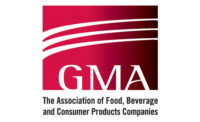Last week, Sen. Pat Roberts, chairman of the US Senate Committee on Agriculture, Nutrition and Forestry, presented to the Senate his amendment to repeal mandatory country-of-origin-labeling (COOL) requirements for beef, pork and chicken to prevent Canada and Mexico from imposing billions of dollars in retaliatory tariffs on the US economy.
Roberts urged his colleagues to support the repeal or risk facing $3.2 billion in tariffs being applied to US exports. “This debate isn’t about the merits of a particular labeling program or our opinions about how our beef or pork or chicken should be sold,” Roberts said. “No, this debate is about a simple fact, and facts are stubborn things. Whether you support COOL or oppose COOL, the fact is retaliation is coming unless the Senate acts to stop this program that the WTO [World Trade Organization] has found to be discriminatory.”
The COOL law would require a label to be placed on meat packages detailing where an animal was born, raised and slaughtered. Consumer groups lobbied for the rule, but Canada and Mexico complained about it to the WTO, which sided with them.
The US House of Representatives voted in June to repeal COOL requirements for beef, pork and chicken. Under threats of trade retaliation from Mexico and Canada, the Country of Origin Labeling Amendments Act was passed by a vote of 300-131. The WTO had previously ruled the labeling requirements were discriminatory against both the US border countries, which said they would seek to impose tariffs worth billions on American products. This recent WTO ruling was the fourth and final decision on the law. In its three previous decisions, WTO ruled against the COOL law.
Recently, Canada’s Agriculture Minister Gerry Ritz and International Trade Minister Ed Fast issued a joint statement on the COOL law saying, “The US Senate must follow the lead of the House of Representatives and put forward legislation that repeals COOL once and for all. The only acceptable outcome remains for the United States to repeal COOL or face $3 billion in annual retaliation. Canada will continue to stand up for the rights of our cattle and hog producers to ensure this harm is ended and to restore the value of our highly integrated North American livestock market.” According to Roberts, Florida, Illinois, Iowa, Michigan, Minnesota, New Jersey, New York, Pennsylvania, Texas, Washington and Wisconsin each have $1 billion in exports that would be at risk for Canadian retaliation.
The US Senate has debated COOL for years, but it remains a divisive issue. Solutions hoping to appease all parties have been considered, though Roberts says the WTO decision means a repeal is likely the only way to avoid retaliation. The North American Meat Institute threw its support behind Roberts, adding that a full and simple repeal is essential.
“The House of Representatives recognized this fact and passed a straightforward repeal, HR 2393, by a vote of 300-131,” says Barry Carpenter, NAMI president and CEO. “Chairman Roberts has shown leadership by acknowledging this reality with his amendment. We can’t afford to waste precious time debating proposals other than a full and simple repeal. Anything else jeopardizes important segments of the US economy and ultimately our consumers.”




